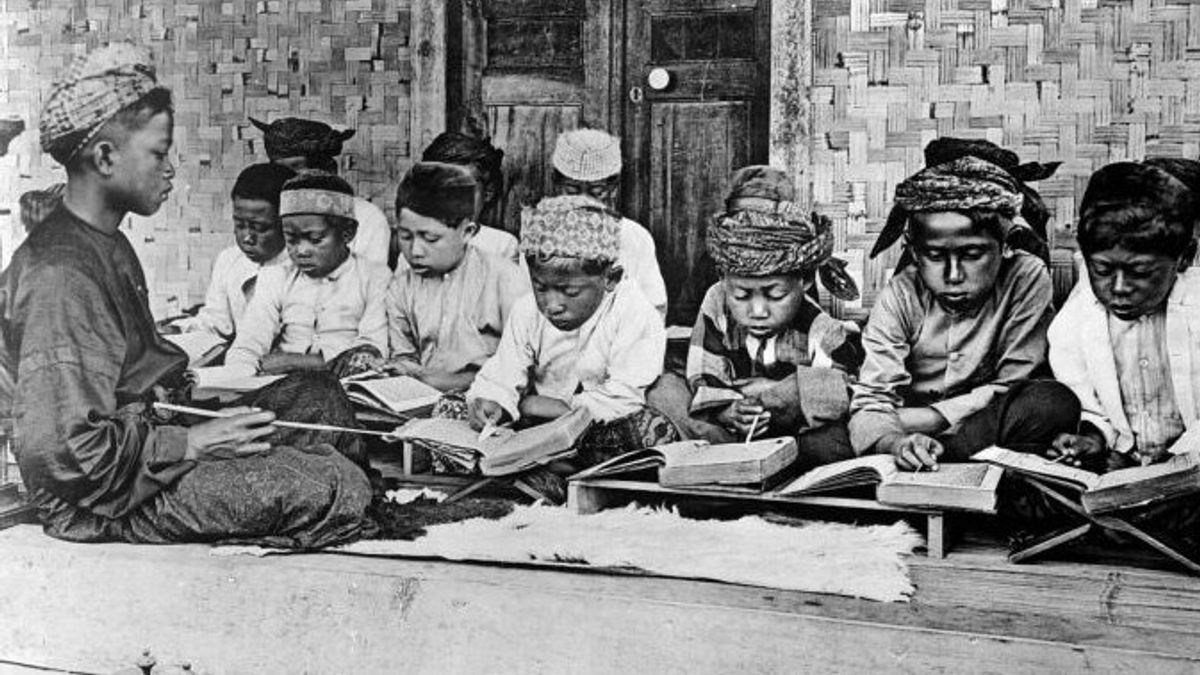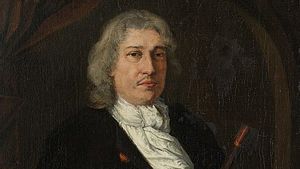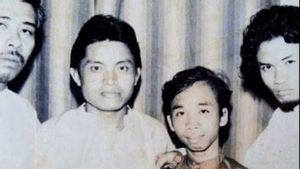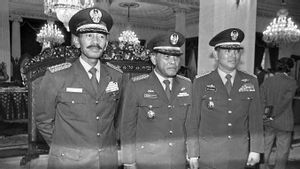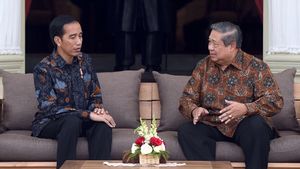JAKARTA - The Dutch trading company VOC was often blinded by the benefits of the spice trade. Those with power see abundant profits like gods. Even other matters are marginalized. Religion matters, especially. The Church Council's suggestion to limit the houses of worship of the natives was half-hearted.
Instead of completing Christianization, the Kompeni actually supported freedom of religion. The climax was during the reign of Governor-General Joan Maetsuyker. For him, religious tolerance was the key to the existence of the VOC.
It's no secret that the company's glory was pioneered by Jan Pieterszoon Coen. The VOC governor general who served twice (1619-1623 and 1627-1629) wanted to monopolize the entire spice trade in Nusantara.
He started many things. He founded a colony state called Batavia (now: Jakarta). Coen also perpetuated several conquests in the Nusantara. Banda Island, is one of them. The conquest made Coen want every Dutch territory whose citizens were Christianized.
Christianization efforts were carried out massively. Moreover, Coen is a devout Calvinist (Protestant). Far from the fire. Attempts at Christianization have failed miserably. The belief of all native people is not easily swayed.

In the end, the Christianization narrative was not supported by a high-ranking company official in the Netherlands, Heeren XVII (Board 17). Christianization costs a lot of money. While the goal of the VOC was purely to gain profits. Not going to heaven.
The attitude of the Company has changed. They finally chose not to get too involved in religious matters. This attitude was also reinforced by the Company's actions which began to support religious freedom. All kinds of worship, including the construction of permanent houses of worship with the permission of the Company.
"The VOC's motto is Economy first, while the issue of Christianization is not a major concern, especially if that process can harm commercialism. However, no matter how much the historian Kernkamp admits, the arrival of Europeans was a critical moment for the continuation of Islam in the Nusantara.”
“The colonialists believed that it would be much easier to relate to a nation with the same religion - even though they are not the same in race and language. Therefore, if Nusantara could be Christianised, the colonial system would not encounter many obstacles," said Islamic scholar, Ahmad Syafii Maarif in the book Mencari Autentisitas dalam Dinamika Zaman (2019).
VOC Supports Religious Freedom
Not a few high-ranking VOCs support the issue of freedom of religion. If anyone had objections to religious freedom, of course, the rejection would come from the Church Council based in Batavia. Many Christian religious leaders regret the decision to have freedom of religion.
The Church Council considers the activities of religious natives in the Nusantara, especially Batavia, to be disruptive to the faith of the Dutch people. However, this narrative was broken during the reign of VOC Governor General Joan Maetsuyker (1653-1678).
Instead, he perpetuated the attitude of tolerance in religious politics. For him, supporting religious freedom is like a ploy. This support was able to have a major influence on the existence of the Company in the eyes of the natives in the Nusantara.
Maetsuyker realized that there were not many Calvinists in the Nusantara. The number of Dutch people was too small. While they wanted to embrace the entire Nusantara so that they would cooperate with the Company. Maetsuyker considers a good way not to prohibit religious freedom so that potential conflicts can be reduced.

Religious people are welcome to worship without interruption. Although still under the supervision of the Company. Likewise, the desire for religious communities to build temples, synagogues (Jewish places of worship), and mosques. The Company often gives permission.
“That under the government of Maetsuyker, the Muslims were free to move. Everything is evident from the request that they - the Muslims - submitted to the Supreme Government so that they could be allowed to build a new mosque was granted. Maetsuyker explained to the priests that he intended to grant the request of the Muslims on the pretext, Muslims also believe in one God, don't they?"
“Just like us, besides, they cannot be blamed for not recognizing the Trinity Christian God (Father, Son, and Holy Spirit). This is because, said Maetsuyker, was caused by untruths in the Koran or because there were no true reports about historical truth. Maetsuyker's attitude of tolerance benefits the Muslims," historian Hendrik E. Niemeijer in the book Batavia: Masyarakat Kolonial Abad XVII (2012).
VOIR éGALEMENT:
The English, Chinese, Japanese, Arabic, and French versions are automatically generated by the AI. So there may still be inaccuracies in translating, please always see Indonesian as our main language. (system supported by DigitalSiber.id)
